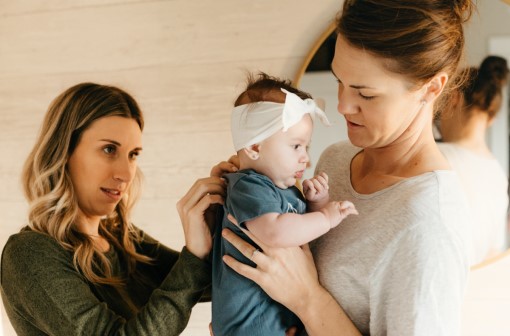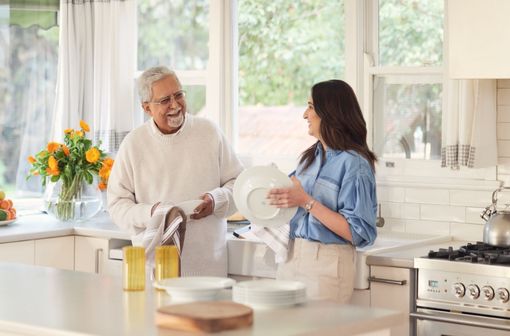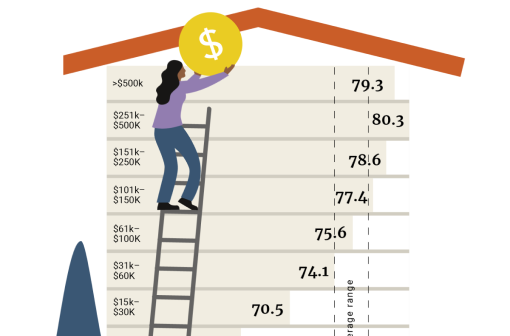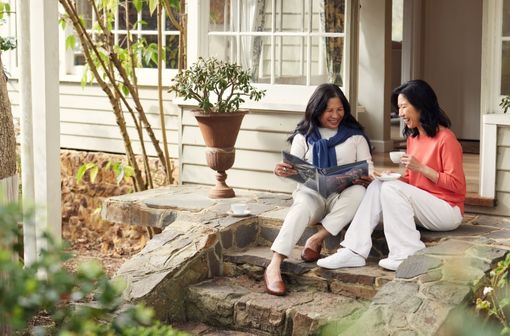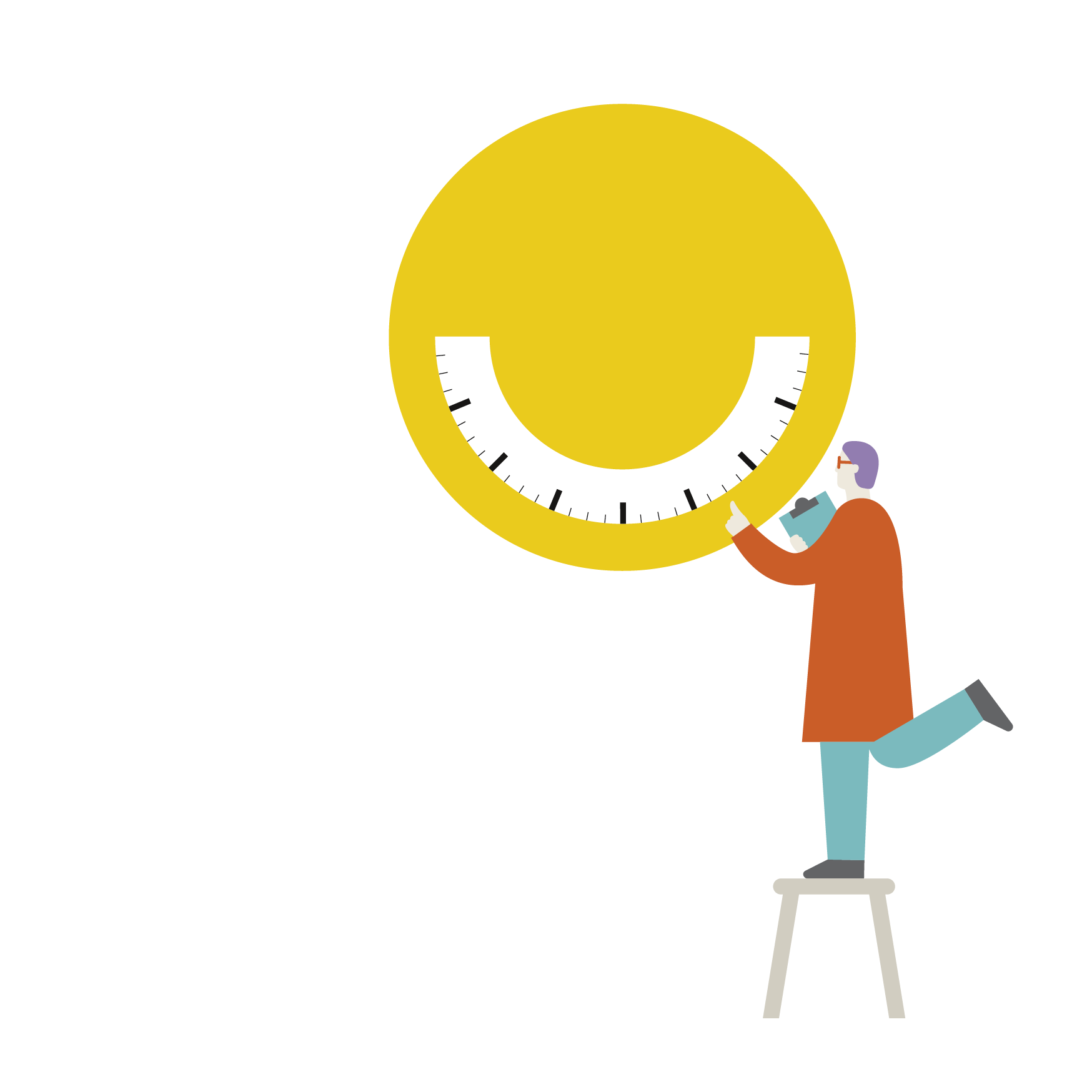“It’s not necessarily about having a marital or intimate partner. It's about having a trusted and caring person in your life that you feel you can rely on.”—Associate Professor Delyse Hutchinson, lead researcher of the Australian Unity Wellbeing Index.
Key points
- Relationships form part of the winning trifecta known as the “golden triangle of happiness”, along with our finances and a sense of purpose
- When it comes to wellbeing, Australian Unity data shows that having a life partner is the single most important factor in feeling socially connected.
- Having a trusted confident in your life is also important to wellbeing, with women generally better at achieving stronger social connections outside of a relationship than men.
Revelations about what’s truly important in life often come from difficult times.
For Kevin, the early stages of fatherhood were challenging. The huge life adjustment was compounded by intense sleep deprivation and a tough spell at work.
In addition, like so many new dads, Kevin struggled to forge an instant connection with his baby and found himself agonising over whether he was doing it all wrong. “There were some really dark times in those first six weeks,” he admits.
What made all the difference to Kevin was the support of his friends and family.
He recalls a neighbour randomly coming around with a lasagne to put in the freezer, while his friends regularly checked in to see how he and his partner were faring.
“People in my network just reached out without me having to ask,” says Kevin. “Sometimes I think you need to go through a trough to understand how strong some of these relationships really are.”

The golden triangle starts with relationships
The value of relationships cannot be overstated. Australian Unity has spent 20 years working with Deakin University to research the building blocks of our personal wellbeing through the Australian Unity Wellbeing Index—and what we’ve discovered is that if you can balance three key elements in a positive ratio, you can massively boost your overall wellbeing.
This winning trifecta is known as the “golden triangle of happiness” and involves having a sense of purpose, establishing a level of financial control and, most importantly, maintaining strong personal relationships.
Reviewing our data, the fundamental role of relationships in sustaining us in good times and bad is clear.
From smartphones to social media, the past 20 years have brought a host of changes to our daily lives, yet satisfaction with our relationships has stayed remarkably stable—fluctuating by a mere four points.
Despite all the technical and social developments, relationships continue to play a defining role in our lives.
“It's really key for me that I've got people I could turn to,” agrees Kevin. “And, luckily, I've always had the support of my family and a really core group of friends.”
Staying connected
Neglecting these bonds can take its toll. Australian Unity Wellbeing Index research shows that higher levels of loneliness are consistently associated with lower personal wellbeing scores overall.
“It all comes back to us being social beings,” says Associate Professor Delyse Hutchinson, the lead researcher of the Australian Unity Wellbeing Index.
“When you feel isolated and don't have positive social interaction with people that impacts particularly on mental health and, in turn, it can affect people's physical health too.”
There’s a real incentive therefore to invest time and effort in building stronger relationships. Whether it’s catching up with an old school pal or a former colleague, fostering closer bonds can buttress your emotional wellbeing.
But while relationships come in many forms, Australian Unity Wellbeing Index data shows that having a life partner is the single most important factor, with levels of social connectedness highest among people who are in romantic relationships and living in partnered households.
Intriguingly, the results show that all couples do not fare the same—having a ring on your finger can deliver a host of specific benefits.
Married people not only record the highest levels of personal wellbeing, but they’re also shown to fare better than de facto couples.
“Definitely, in our home life, finding a life partner is still held as the social norm, isn't it?” says Elisabeth Shaw, CEO of Relationships Australia.
“It is seen to be the Holy Grail and the measure of success, and so people judge themselves as to whether they've been able to achieve that. People who are single, voluntarily or not, often feel very negative not having achieved that standard, whether that is fair or not.”
Men and marriage
Elisabeth points out that men, in particular, seem to benefit from committed relationships. Studies reveal that married men are healthier in body and mind—they have a lower risk of heart disease, cancer and depression. Single men, on the other hand, tend to fair worse than women, particularly when it comes to their social relationships.
“Men can be more likely to rely on their partner and the trappings of marriage as their social life,” says Elisabeth. “Overall women are better at hanging on to lifelong friendships. They tend to work harder at having a social life outside the relationship.”

Building bridges
Yet for all this emphasis on intimate relationships, Elisabeth and Delyse are both at great pains to stress that being part of a couple is by no means the only path to a happy life. “It’s not necessarily about having a marital or intimate partner,” insists Delyse.
“It's about having a trusted and caring person in your life that you feel you can rely on.”
Sadly, not everyone has that trusted confidant in their lives. People relocate, marriages end, careers change and old friends pass away.
But if your circumstances mean that you no longer have close relationships, how can you cultivate them in adult life?
The answer, says Delyse, is to get on the front foot and create opportunities for those friendships to germinate.
Participating in local events or activities, whether it’s joining a group based around something you love or volunteering for something you care about, can become a proactive way to kindle new friendships as adult.
“There is effort involved in stepping out of your comfort zone,” says Delyse. “But making that effort to connect can make all the difference.”
So if you’re feeling a bit lost, pick up the phone and call someone. Finding the time to engage with the people we care about is crucial to a happy and well-balanced life.



